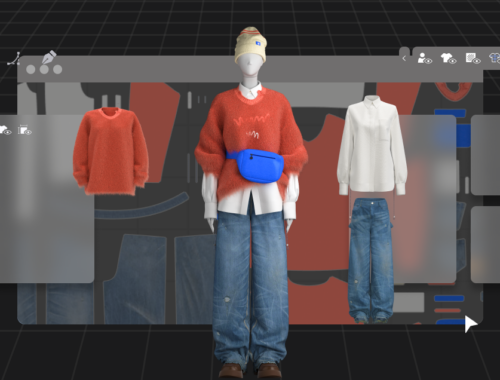A “Plogger” Is a Runner, but More Smug
The latest iteration of running for a cause
For several summers in my early twenties, I took an 18-hour train trip from Vienna, Austria, where I lived, to Copenhagen. The best part of the journey came toward the end. Not long after Hamburg, the train boards a ferry to cross a short stretch of the Baltic Sea, and you can briefly go up to the outer deck and see the wind farms off the Danish coast. The first time I noticed those pinwheeling turbines on the horizon, it looked like a kind of paradise.
Ever since, I’ve thought of Scandinavia as a futuristic Eden of progressive environmentalism. Hence, I wasn’t at all surprised when, last week, my editor made me aware of the new craze from Sweden called “plogging.”
The word is the English language equivalent of plogga, a hybrid of the Swedish verbs plocka (meaning to pick up) and jogga (jog). Plogging is essentially running, with the additional challenge of picking up any garbage you might see on your way. As of yet, no apparel company has tried to capitalize on this burgeoning trend by producing a line of plogging gear—right now, the only “gear” as such is trash bags and rubber gloves—but surely it’s only a matter of time. (My money is on Tracksmith.)
While the main purpose of plogging is to beautify your local environment, the activity provides an additional fitness benefit by breaking up the monotony of your running routine. A recent Washington Post article notes that plogging is like doing “squats while jogging,” and that “a half-hour of jogging plus picking up trash will burn 288 calories for the average person, compared with the 235 burned by jogging alone.”
Who knew? Of course, the efficacy of plogging as a means of whipping your quads into shape probably depends on where you live. On the immaculate streets of Stockholm, you might have a tough time. My fair city of New York, on the other hand, could easily host the plogging world championships every year. Especially after a parade.
A recent Competitor article maintains that “runners, who are naturally competitive, get an outlet for one-upmanship with plogga.” Furthermore, even though “plogging events aren’t competitions, many participants can’t resist the urge to pick up the most amount of trash in the shortest amount of time.” So the next time you’re out walking your dog and some limber dude in half-tights is frantically trying to scrape all the gum off the sidewalk, don’t feel like you need to cross to the other side of the street.
Plogging does seem to be making inroads here in the United States. The anti-littering nonprofit Keep America Beautiful has been spreading the word on its website, and local plogging groups are starting to proliferate. There was even a plogging event in Denver at Outdoor Retailer in January, led by none other than ür-plogger Erik Ahlström.
In a way, the rise of plogging feels of a piece with a broader trend toward making exercise about something other than one’s own vanity or competitive aspirations. We live in the age of the charity marathoner, where personal fitness goals can be combined with larger philanthropic projects. “You may be running because you want to look good naked. I’m running because I want to help find a cure for Alzheimer’s.” A guy I went to college with calls this exercising with a “double sense of smugness.” As it turns out, that same guy started a company called GoodGym, which seeks to reinvent exercise as a form of community service. The general idea is that instead of grunting at yourself for an hour every day on the treadmill, that time and energy might be better spent running to deliver a meal to the elderly or some other selfless purpose.
Such initiatives to recast running as a means to an end will likely be met with skepticism by those for whom running is already enough of an end in and of itself. You know the type. Those horrible people who voluntarily run themselves into a stupor and claim it’s the highlight of their day. These are the kind of snobs who probably think they’re way too cool to interrupt a tempo session to fish a soiled diaper out of the sewer. They have no idea what they’re missing.
You May Also Like

Block Breaker: The Ultimate Puzzle Challenge
March 22, 2025
ユニットハウスのメリットとデメリットを徹底解説
March 21, 2025